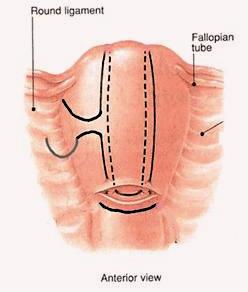Antepartum or pre-partum haemorrhage is bleeding from the birth canal which occurs after 24 weeks of gestation. Because it can lead to death of the mother and fetus, the pregnant sufferer must be admitted to hospital for proper assessment.
This condition affects 3-5% of pregnancies and is three times more common in multiparous than primiparous women.
Causes of antepartum haemorrhage:
- Placenta previa – A condition in which the placenta is inserted partly or totally in the lower section of the uterus;
- Placental abruption – Separation of the placenta from the uterus;

- Local causes such as cervical infection or vulval, tumors or trauma;
- Vasa praevia – Leakage of blood from the fetal vessels within fetal membranes;
- Uterine rupture;
- Dilation of cervix with bulging membranes.
Complications caused by antepartum haemorrhage:
- Premature labor;
- Postpartum haemorrhage;
- Renal tubular necrosis;
- Placental accreta;
- Disseminated intravascular coagulopathy.
How to spot antepartum haemorrhage?
- Vaginal bleeding without any pain;
- Dizziness and tender abdomen;
- You will feel cold and clammy to the touch;
- Development of lower uterine segments takes place after 28 weeks[28 weeks pregnant]Â and after that bleeding gets started;
- Decrease in blood pressure and sudden rise in pulse rate;
- Excessive sweating and your skin turns pale;
- Mal presentation.
Managing antepartum haemorrhage:
If you think you are suffering from antepartum haemorrhage when you are 24 weeks pregnant, go to hospital immediately for proper assessment and management.
Have an ultrasound examination first for fetal monitoring.
- The practitioner should administer a gentle palpation of your abdomen to determine the fetus gestational age, position and presentation.
- If you suffer from severe bleeding or fetal distress, your practitioner will recommend you undergo urgent delivery without considering the gestational age.
- Resuscitation measures may be required if you are in shock.
- Women with Rhesus negative should undergo a Kleihauer test and should be given prophylactic anti-D immunoglobulin.
- Ensure no vaginal examination is done until the placenta previa is eliminated with the help of ultrasound.
- Plenty of bed rest is necessary.
- Hydrallazine is usually used for treatment.







can you please send me thru my e-mail more about ante partum haemorrhage.which i will use in my lecture.thank you.& more power.